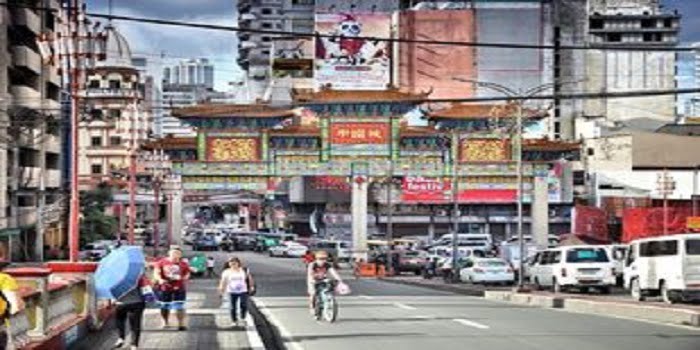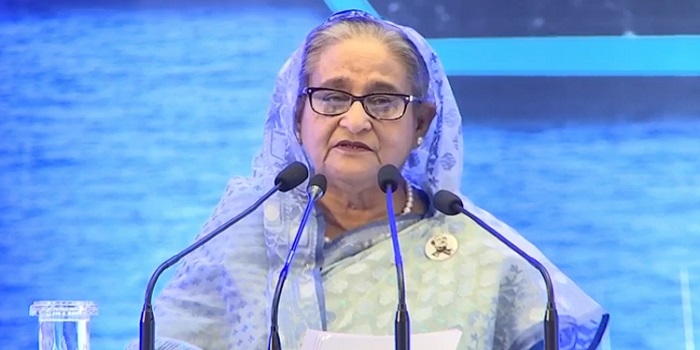A Chinatown in South Korea is supposed to attract tourists, instead it has sparked anti-Chinese sentiment

SCMP magazines : The oldest Chinatown in the world is in Binondo, Manila, in the Philippines. It was established in 1594 by the Spanish colonial government as a settlement for Chinese immigrants who had converted to Catholicism and intermarried with Filipinos. At the other end of the continuum is a Chinatown currently under construction in South Korea’s Gangwon province and expected to be completed in 2022.
According to an article published by AirAsia, “Binondo was said to have been intentionally situated to put some distance between the Spanish elite and sangleys – an archaic and derogatory term for pure-blooded Chinese immigrants – but close enough to keep an eye on them amid fears of an imminent invasion from China.” In a contemporary context, such Sinophobia would be considered racism, and it seems that similar sentiments are swirling online in reaction to Korea-China Culture Town.
“An online petition has been filed on the Cheong Wa Dae [government] website recently, calling for an end to the ongoing construction of a Chinatown and Legoland in Chuncheon, Gangwon Province,” reported English-language newspaper The Korea Times, on March 31. “The petitioner wrote that Koreans do not understand why Korea should provide cultural experiences from China, or why there should be a ‘little China’ in Korea.”
Korea-China Culture Town will feature “a range of facilities and attractions”, including traditional Chinese gardens, and will be 10 times the size of South Korea’s only “official” Chinatown, in Incheon. It was planned – alongside the Legoland theme park, which will include a hotel catering to Chinese visitors – to drive tourism to the region, namely Chinese tourism.
Unfortunately, despite recent attempts at political rapprochement, with the two countries’ foreign ministers meeting in Xiamen on April 3 in what was South Korea’s first ministerial-level visit to China since 2017, cultural relations remain strained.
Explaining their opposition to the development, the person who posted the petition wrote: “Even if exchanges and cooperation are important in Korea-China relations, it is incomprehensible amid recent cultural feuds.” According to The Korea Times, “The petitioner cited recent controversies caused by Chinese influencers and websites claiming kimchi, hanbok and other traditional Korean cultural items as their own, calling these an attempt to distort Korea’s history and plunder Korean culture.”
By April 5, the petition had gathered more than 415,000 signatures. “Petitions recommended by more than 200,000 people typically prompt a response from Blue House officials,” reported English-language daily The Korea Herald. However, if the provincial government response to the petition is anything to go by, the construction of Korea-China Culture Town will continue; “The government of Gangwon Province said that the culture town is only a tourist attraction, not a facility for the collective residence of Chinese people,” reported The Korea Times.
In 2019, before international tourism was interrupted by the coronavirus pandemic, South Korea recorded 17.5 million visitor arrivals, of whom 6 million were Chinese, according to the Korea Tourism Organisation. That was an increase of almost 30 per cent from the previous year and a significant rise from 2017, when China banned package tours to South Korea following Seoul’s deployment of a United States anti-ballistic missile system. Resulting political tensions carried over into “tourism, cosmetics and entertainment industries, which had prospered thanks to Chinese demand”, reported financial newspaper Nikkei Asian Review.
Then, just as relations appeared to be improving, along came Covid-19 and forced everyone inside and online. Unable to engage in actual physical cultural exchanges, armchair warriors in China and South Korea instead engaged in digital culture wars over the origins of delicacies, dress and even acupuncture. Needless to say, it got personal, and ugly.
According to a February 2020 Al Jazeera report on rising anti-Chinese sentiment in South Korea, “It is hard to tell where exactly the racism and animosity come from, but tension over real estate and South Korea’s hazardous air have been long-standing, even before the coronavirus outbreak.”
The reaction to the development of Korea-China Culture Town suggests, sadly, that such sentiments could outlast the pandemic, too.








